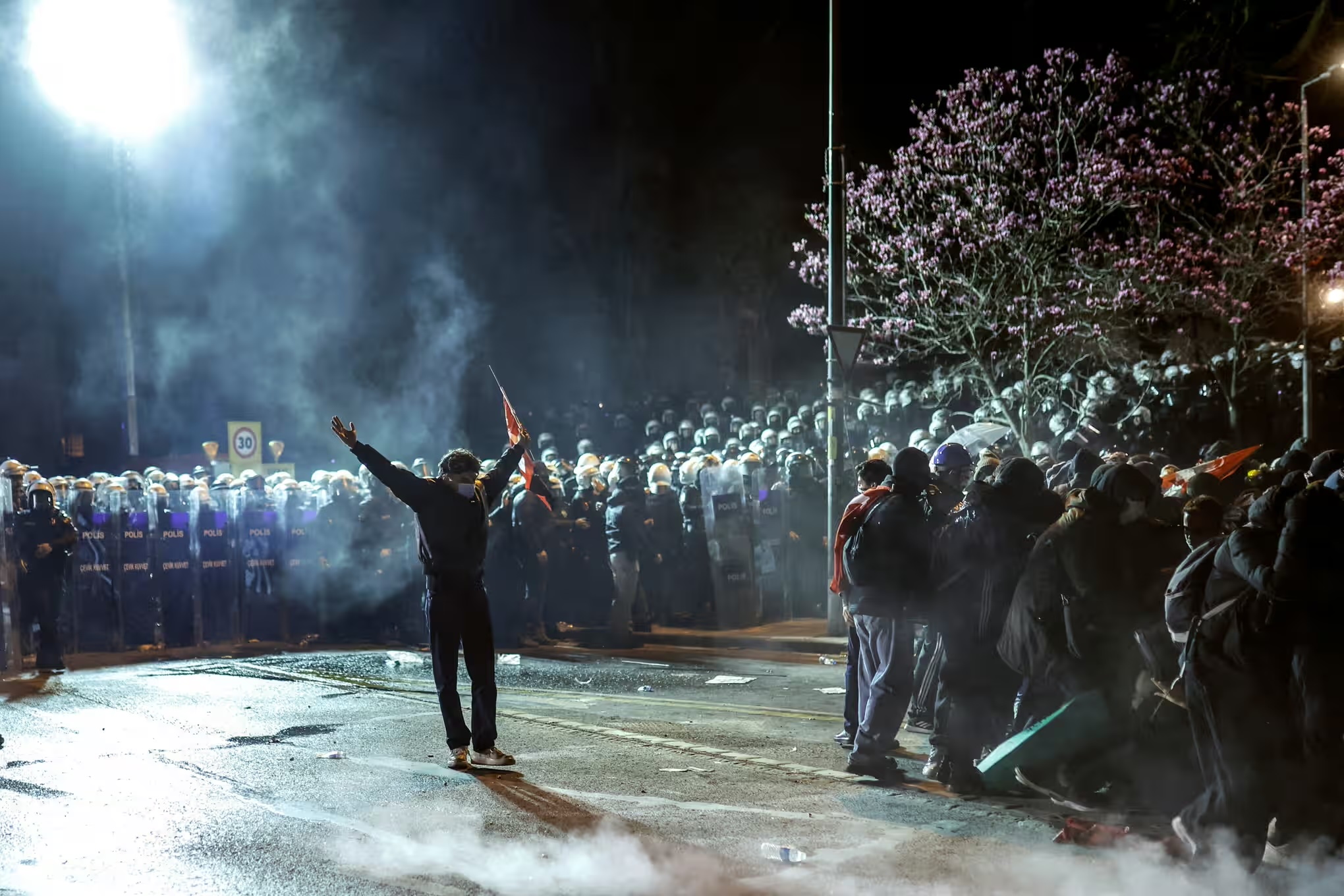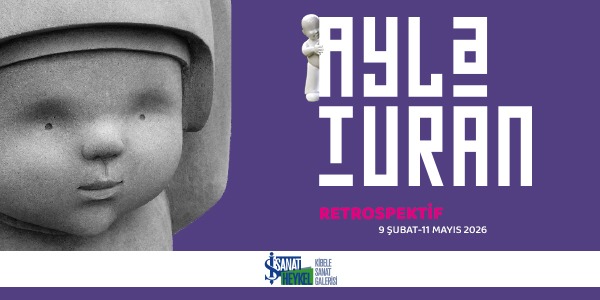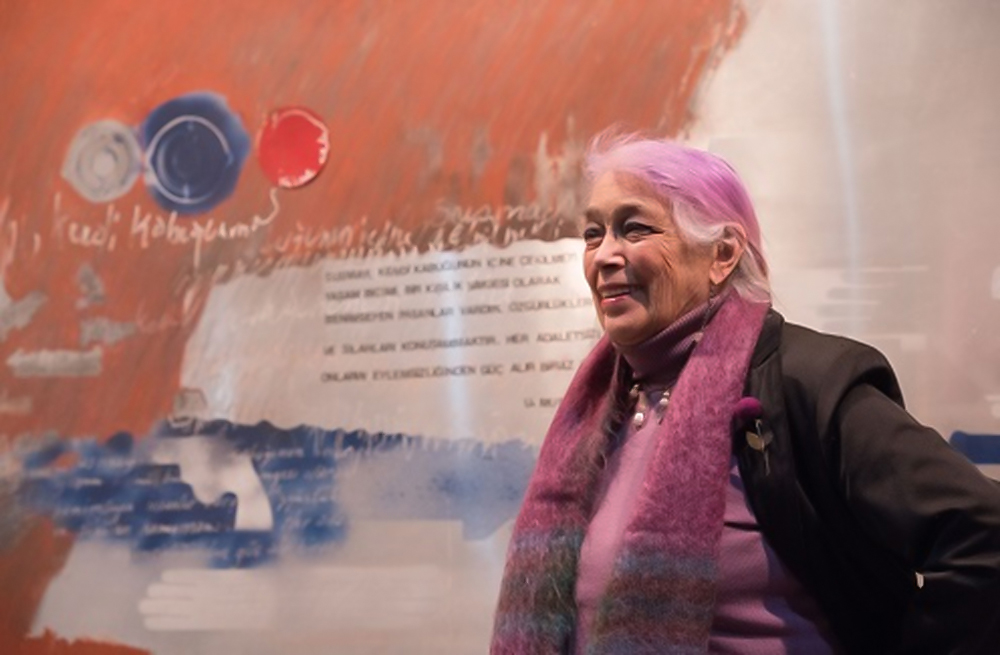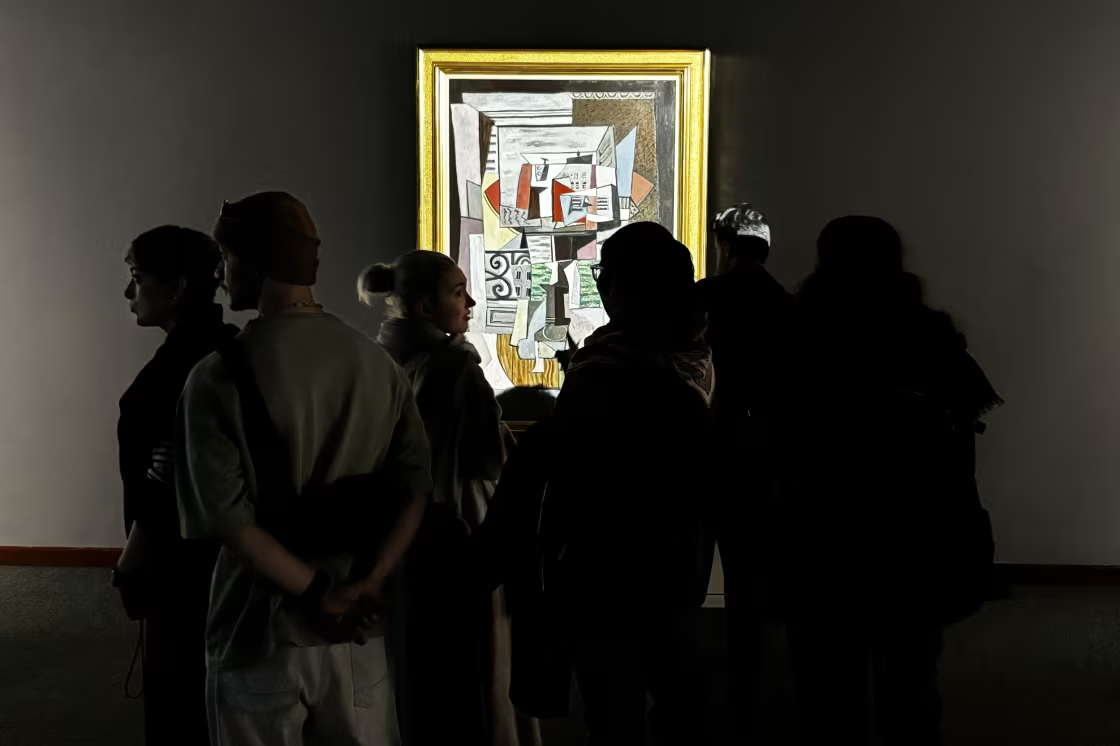In his article for The Guardian, Orhan Pamuk interprets Ekrem İmamoğlu’s arrest as a sign of Turkey’s democratic decline. He highlights the ongoing resistance of the people in the face of increasing pressures and restrictions.
Earlier this month, Ekrem İmamoğlu, the Mayor of Istanbul and President Recep Tayyip Erdoğan’s most formidable political opponent, was arrested on blatantly fabricated corruption and terrorism charges. Since then, Taksim Square, Istanbul’s largest tourist hub and a historic center for political protests, has remained eerily empty, surrounded by police barricades.
In my 50 years in Istanbul, I have never witnessed such extensive security measures as those imposed in recent days. Taksim’s metro station, along with several of the city’s busiest transport hubs, has been shut down. Authorities have restricted car and intercity bus access to Istanbul, with police checking vehicles at entry points and turning back anyone they suspect of coming to protest.
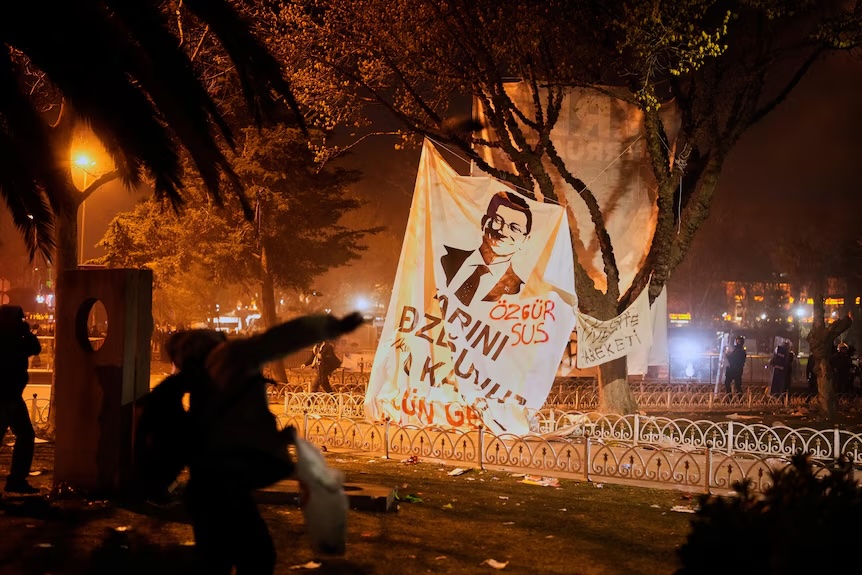
Across Istanbul and the entire country, televisions are left on, with people glued to the screens, following these shocking political developments. The Istanbul governor’s office has banned protests and political demonstrations for over a week, despite these rights being guaranteed by the constitution. Yet, unauthorized protests and clashes with police have continued, even as authorities attempt to disrupt gatherings by restricting internet access. Police are using tear gas with brutal force, arresting countless protesters.
How can such unbelievable events take place in a NATO member country that aspires to join the EU? As the world remains preoccupied with Donald Trump, the Israel-Palestine conflict, and the Ukraine-Russia war, the last remnants of Turkish democracy are struggling to survive.
The imprisonment of Erdoğan’s strongest rival, a politician with the potential to gain widespread public support, marks an unprecedented escalation of his harsh, autocratic rule. İmamoğlu’s arrest came just days before Turkey’s main opposition party was set to officially declare him their presidential candidate through a primary election.
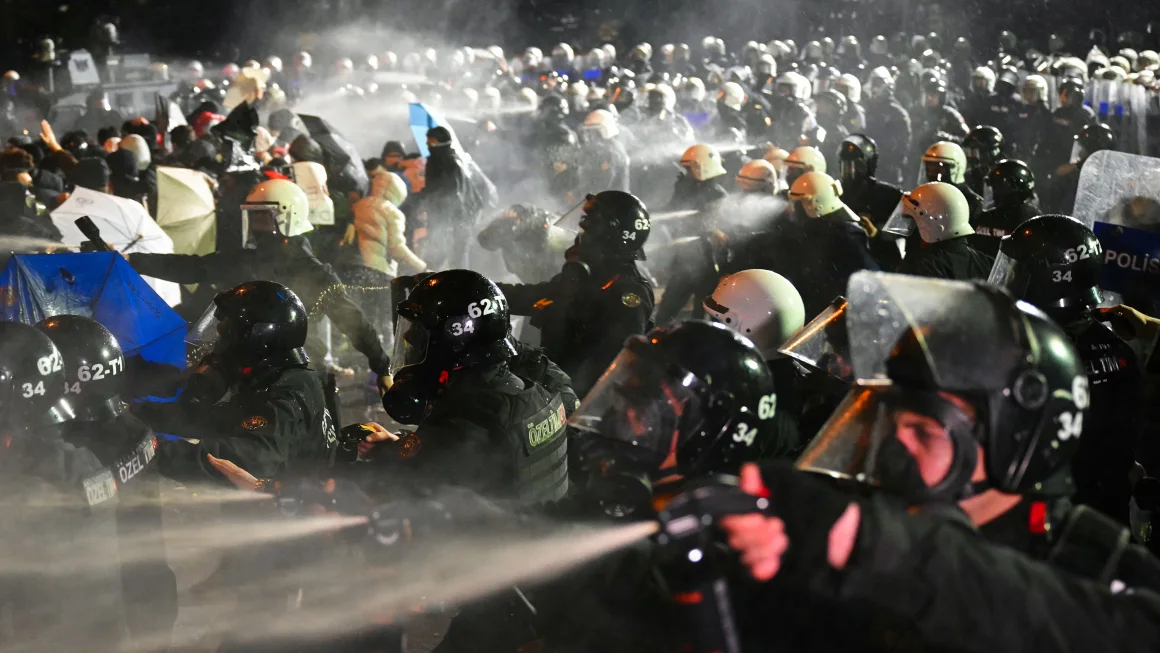
Regardless of their political stance—pro-government or opposition—most people in Turkey agree on one thing: Erdoğan sees İmamoğlu as a political threat and wants to eliminate him.
Still, these two events are not exactly the same. In İmamoğlu’s case, there is a deliberate and systematic attempt to eliminate him from the race. Just one day before police officers were sent to his home, pro-Erdoğan media and the Erdoğan-appointed rector of Istanbul University claimed that İmamoğlu’s university diploma was invalid, alleging irregularities in his transfer from a private university. Since only university graduates are eligible to run for presidentin Turkey, this would have disqualified him from the race. İmamoğlu announced that he would appeal the decision, but then came the corruption and terrorism charges against him.
Labeling political rivals as “terrorists” has become a common strategy under Erdoğan’s rule, especially after the failed coup attempt in 2016. In 2019, when Austrian writer Peter Handke received the Nobel Prize in Literature—despite widespread criticism for his support of former Serbian leader Slobodan Milosević—Erdoğa strongly condemned the decision. Caught off guard during a speech without a teleprompter, he declared, “They even gave the same award to a Turkish terrorist!”—seemingly referring to me, the 2006 Nobel Literature Laureate.
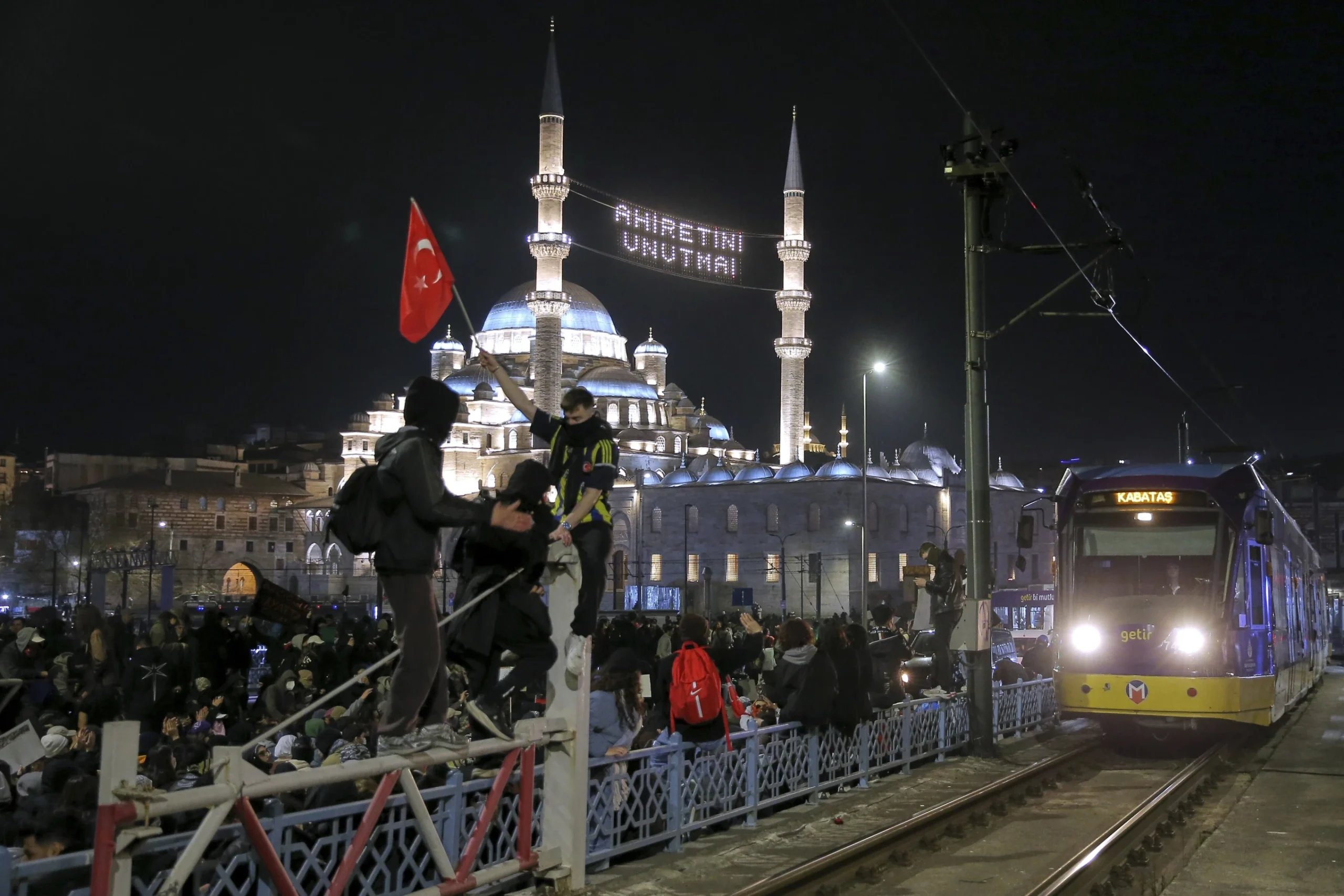
(AP Photo/Hüseyin Aldemir)
At the time, I was about to fly from New York to Istanbul, and I seriously considered canceling my trip. However, shortly after, the presidential spokesperson clarified that Erdoğan was not actually referring to me.
A court under Erdoğan’s control has sentenced İmamoğlu to prison on corruption charges but has not accused him of terrorism. A terrorism charge would have allowed Erdoğan to appoint his own candidate as Mayor of Istanbul—and, according to some, regain access to the city’s massive tax revenues for his party’s propaganda and promotion efforts.
By imprisoning İmamoğlu, Erdoğan is not only eliminating a hugely popular political rival but also reclaiming a major financial resource that he has not been able to touch for seven years. If he succeeds, the upcoming presidential election will see Istanbul covered in giant campaign posters of Erdoğan and his candidates.
To anyone familiar with Turkish politics, this comes as no surprise. For the past decade, Turkey has not been a true democracy—it has been merely an electoral democracy. People can vote, but there is no freedom of expression or thought. The state actively seeks to suppress dissent. In the last few days, many journalists and civil servants have been arbitrarily imprisoned, either to support the corruption accusations against İmamoğlu or simply to distract attention—but nobody is even talking about it.
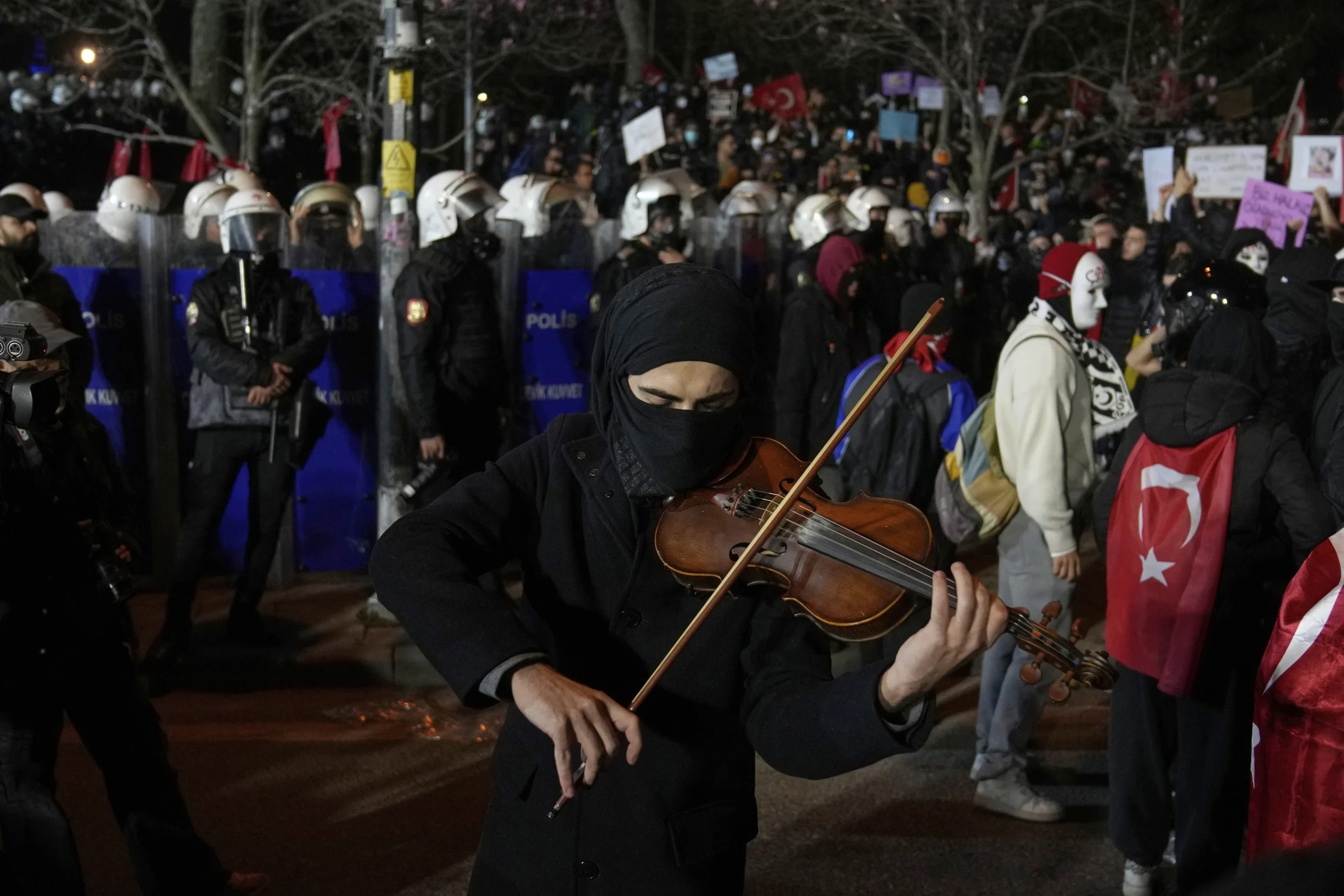
(AP Photo/Khalil Hamra)
Now, with the arrest of the country’s most popular politician—the leading candidate for the next election—even this limited democracy is coming to an end. This is unacceptable and terrifying. That is why more and more people are joining the protests every day.
For now, no one knows what the next step will be.
This article is a Turkish translation of Orhan Pamuk’s original piece, published under the Creative Commons BY 4.0 license on The Guardian website. To read the original content, visit https://www.theguardian.com/commentisfree/2025/mar/28/clampdowns-istanbul-turkey-democracy-jail-president-erdogan-rival-protesters.





